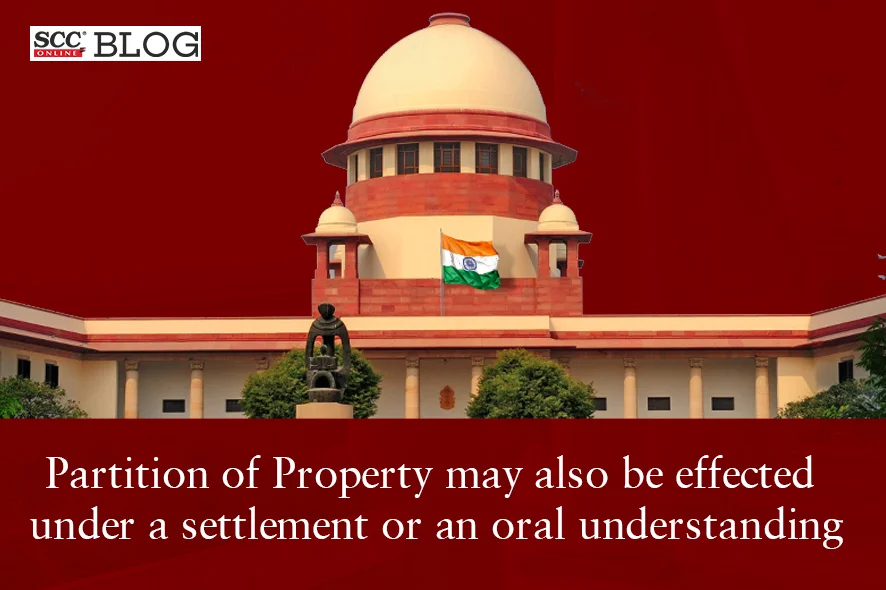Supreme Court: In a civil appeal against the judgment of Madras High Court whereby, the appellant’s appeal against the Trial Court’s decision dismissing the appellant’s Partition and Injunction Suit was dismissed, the Division Bench of Bela M. Trivedi and S.V.N. Bhatti, JJ. dismissed the appeal.
Background
In the matter at hand, a declaration was sought in appellant’s favour by way of a suit, declaring the appellant to be a coparcener by amended Section 29-A of the Hindu Succession Act, 1956 (‘the Act’). On 25-03-1989, Section 29A of the Act was amended vide Tamil Nadu Amendment Act, 1989 (‘State Amendment’) which conferred on the unmarried daughters the status of coparceners and right in coparcenary property for partition, etc. A one-third share in the said property, and partition was also sought along with an injunction order, restraining the father and brother (‘defendants’) from disposing of one-third part claimed by the appellant to the third parties. A Suit was filed before the Madras High Court, which was transferred to the City Civil Court, Chennai. The appellant was seeking the benefit under the partial partition deed dated 24-02-1980 and claimed for partition of the property. The Trial Court dismissed the Suit and thus, aggrieved by the dismissal of the Suit the appellant approached the High Court. However, the High Court dismissed the appeal by the impugnment Judgment. Hence, the present Civil Appeal.
Decision
The Court said that the applicability of Section 29A was not the deciding factor but the deciding factor in the case at hand was whether the property in question was available for partition. The Court also said that it was crucial that whether the property had the status or standing of a coparcenary property and was available for partition. The Court noted that the High Court had found that the property was not available for partition as of the date of coming into force of Section 29A of the State Amendment and dismissed the appeal, the Court concurred with the findings of the High Court. Further, the Court observed that there is a principle that there is no prohibition to effect a partition otherwise than through an instrument in writing by duly complying with the requirement of law. The Court explained that the division of property may also be effected under a settlement or an oral understanding.
The Court said that in the matter at hand, the appellant was legally obligated to discharge the burden that the property was not only a coparcenary but continued to be so even as of 25-03-1989 and that the appellant was entitled to enforce the claim for partition, however, the appellant failed to discharge the said burden.
Therefore, the Court dismissed the present appeal.
[H. Vasanthi v. A. Santha, 2023 SCC OnLine SC 998, Decided on 16-08-2023]






